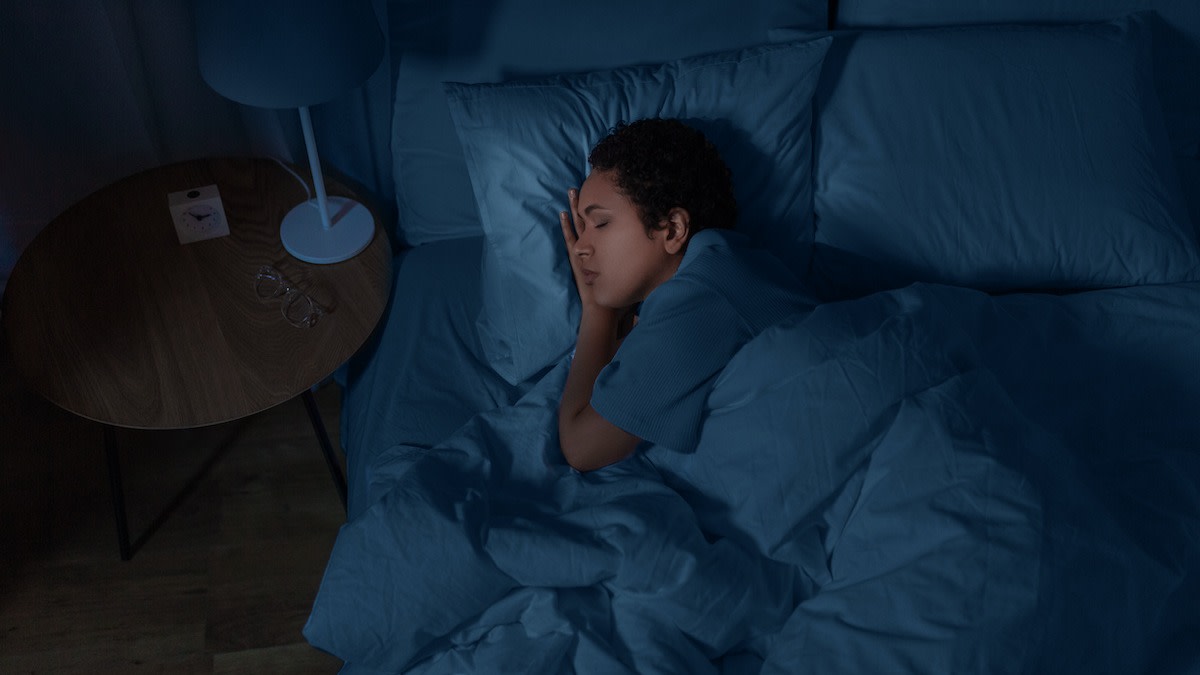Sleep Paralysis Explained: How to Prevent Sleep Paralysis
Written by MasterClass
Last updated: Nov 30, 2021 • 3 min read
Sleep paralysis is a sleep disorder in which the mind is conscious, but the sleeper temporarily loses control of muscles and sometimes the ability to speak. Read about how to improve your sleep hygiene to prevent sleep paralysis.
Learn From the Best
What Is Sleep Paralysis?
Sleep paralysis is a temporary state of mental wakefulness and physical paralysis. Sleep paralysis episodes typically occur just before or after the rapid eye movement stage of sleep. This overlap of wakefulness and REM sleep can create the sensation of hallucinations.
Do You Hallucinate During Sleep Paralysis?
Sleep paralysis is a parasomnia disorder, a type of sleep disorder. (Other types of parasomnia include sleepwalking and night terrors.) The experience of sleep paralysis often incites hypnagogic hallucinations, which occur while falling asleep, or hypnopompic hallucinations, which happen when waking up.
Vestibular-motor hallucinations produce out-of-body sensations and dreamlike feelings of motion. Some people experience sleep paralysis with intruder hallucinations that mimic nightmares and often involve the sense that someone is lurking nearby. Sleep paralysis can also incite incubus hallucinations, which create a perceived pressure in the chest area that can feel like suffocation.
Is Sleep Paralysis a Sign of Narcolepsy?
Sleep paralysis and cataplexy are sleep disorders that can cause atonia, a temporary loss of muscle control. Cataplexy is a chronic syndrome commonly linked to the neurological disorder known as narcolepsy. A person can experience an episode of sleep paralysis without being narcoleptic or cataplectic. However, repeated sleep paralysis episodes may be an early sign of narcolepsy. Consult a neurologist for a proper diagnosis.
3 Causes of Sleep Paralysis
The scientific community has not reached a consensus on what causes sleep paralysis, although several conditions correlate with the phenomenon:
- Obstructive sleep apnea (OSA): People with sleep apnea often experience sleep paralysis. Sleep apnea is a sleep disorder that occurs when a person’s upper airway becomes blocked, triggering abnormal breathing during sleep.
- Mental health conditions: Sleep paralysis is more common in psychiatric patients, particularly those with post-traumatic stress disorder (PTSD), severe anxiety disorders, and panic disorders.
- Irregular sleep cycles: A lack of sleep can trigger sleep paralysis. Irregular work schedules, frequent jet lag, and medications that cause routine sleep deprivation put a person at greater risk for sleep paralysis.
If you experience sleep paralysis, consider reaching out to a sleep care specialist to conduct a sleep study.
Treatment for Sleep Paralysis
Health care professionals may treat severe cases of sleep paralysis with antidepressants, but the first step you can take to prevent sleep paralysis is to improve your overall sleep hygiene. Follow these steps to build healthy sleep habits:
- Keep a consistent sleep schedule. Your body's circadian rhythm is programmed to sleep and wake up at the same time every night. Keep a routine of sleep patterns for maximum sleep quality.
- Avoid caffeine before bed. Whenever possible, refrain from drinking caffeine within four hours of your bedtime to get better sleep.
- Avoid excessive alcohol consumption. Alcohol can knock you out quickly, but it can be ruinous for a good night's sleep. To sleep soundly through the night, limit yourself to two alcoholic beverages or fewer, and not too close to your bedtime.
- Limit nighttime exposure to screens. The blue light that radiates from electronic screens prevents your body from releasing the sleep hormone melatonin, which throws off the timing of your circadian rhythm.
- Keep your bedroom cool. The human body sleeps soundly at relatively cool temperatures. Turn down the thermostat to around 68 degrees Fahrenheit for a better night's sleep.
Want to Learn More About Catching Those Elusive Zs?
Saw some of the best darn logs of your life with a MasterClass Annual Membership and exclusive instructional videos from Dr. Matthew Walker, the author of Why We Sleep and the founder-director of the Center for Human Sleep Science at the University of California, Berkeley. Between Matthew’s tips for optimal snoozing and info on discovering your body’s ideal rhythms, you’ll be sleeping more deeply in no time.
